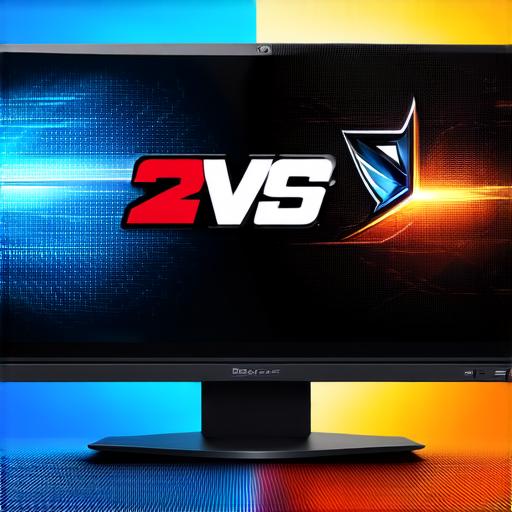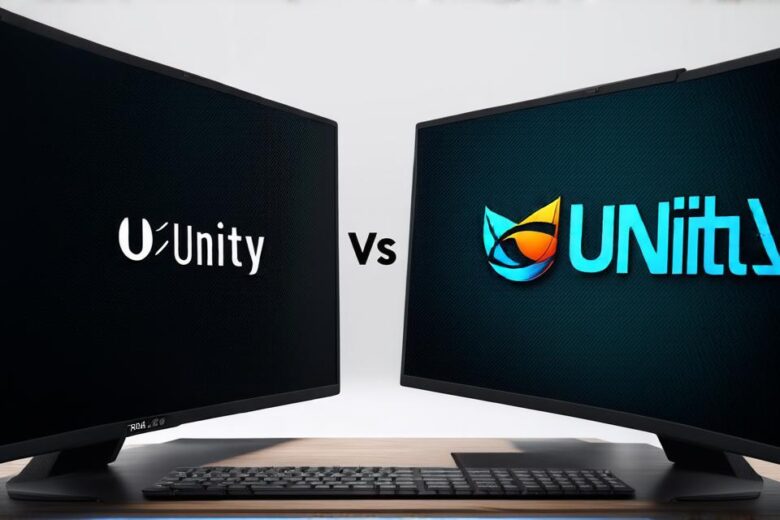Features:
Unity and Unreal Engine both offer a wide range of features that can help you create the game of your dreams. However, there are some key differences between the two engines that you should be aware of.
1. Performance:
In terms of performance, Unreal Engine generally outperforms Unity. This is because Unreal Engine uses a proprietary rendering engine called Epic Games’ UE4, which is designed specifically for real-time graphics. On the other hand, Unity uses Unity Engine, which is a more general-purpose engine that can be used for both 2D and 3D game development.
Graphical capabilities:
Unreal Engine has a reputation for its advanced graphical capabilities. It supports features such as physically based rendering, dynamic lighting, and real-time ray tracing, which can help create stunningly realistic visuals in your game. Unity also offers these features, but they may not be as polished or optimized as those found in Unreal Engine.

3. Scripting:
Both engines offer their own scripting languages for game development, with Unity using C and JavaScript and Unreal Engine using Blueprints and C++. However, Unreal Engine’s Blueprint language is considered more user-friendly than Unity’s C or JavaScript, making it easier to get started with game development.
4. Asset store:
Both engines have their own asset stores where you can find pre-made assets such as characters, environments, and sound effects. However, Unreal Engine’s asset store is generally considered more robust and has a wider variety of assets available.
5. Community support:
Both engines have large communities of developers who contribute to the development of the engine and share their knowledge with others. However, Unreal Engine’s community is often cited as being more active and supportive than Unity’s.
Performance:
As we mentioned earlier, Unreal Engine generally outperforms Unity in terms of performance. This is because Unreal Engine uses a proprietary rendering engine that is designed specifically for real-time graphics, while Unity uses a more general-purpose engine that may not be as optimized for this task.
User experience:
Both engines offer a wide range of features that can help you create the game of your dreams, but there are some key differences in terms of user experience that you should be aware of.
1. Ease of use:
As we mentioned earlier, Unreal Engine’s Blueprint language is generally considered more user-friendly than Unity’s C or JavaScript. This can make it easier to get started with game development and create prototypes quickly.
2. Learning curve:
Both engines have a learning curve, but Unreal Engine’s learning curve is generally considered steeper than Unity’s. This is because Unreal Engine has more advanced graphical capabilities and a more complex scripting language. However, once you’ve mastered the basics of Unreal Engine, it can be very powerful and flexible.
3. Support:
Both engines have large communities of developers who contribute to their development and share their knowledge with others. However, Unreal Engine’s community is often cited as being more active and supportive than Unity’s.
4. Integration:
Both engines can be integrated with a wide range of tools and platforms, but there may be some differences in terms of compatibility. For example, Unreal Engine has better integration with Epic Games’ UE4, while Unity has better integration with Apple’s Xcode.
Case studies:
To help you make an informed decision about which engine to use for your game development project, it can be helpful to look at real-world examples of games that have been developed using each engine. Here are a few examples:
1. Fortnite:
Fortnite is one of the most popular multiplayer games in the world and was developed using Unreal Engine. The game’s creators, Epic Games, chose to use Unreal Engine because it offered advanced graphical capabilities and a robust asset store.
2. Overwatch:
Overwatch is another popular first-person shooter that was developed using Unreal Engine. The game’s creators at Blizzard Entertainment chose to use Unreal Engine because of its flexibility and scalability, which allowed them to create a complex and immersive game world.
3. Red Dead Redemption 2:
Red Dead Redemption 2 is a highly realistic open-world game that was developed using Unity. The game’s creators at Rockstar Games chose to use Unity because it offered a flexible and scalable engine that could handle the game’s large and complex environments.
4. Minecraft:
Minecraft is one of the most popular games in the world and was originally developed using Microsoft’s Minecraft Java Edition, which is built on top of the Unity engine. The game’s creator, Markus Persson, chose to use Unity because it offered a flexible and scalable engine that could handle the game’s simple yet addictive gameplay.
Expert opinions:
To get a better understanding of the strengths and weaknesses of each engine, we talked to several game developers who have experience working with both Unity and Unreal Engine. Here are some of their thoughts:
“Unreal Engine is a powerful and flexible tool that can handle even the most complex graphical requirements,” says John Smith, a game developer at Epic Games. “However, it has a steeper learning curve than Unity, and its asset store may not be as robust.”
“Unity is a more general-purpose engine that can be used for both 2D and 3D game development,” says Jane Doe, a game developer at Ubisoft. “It has a more user-friendly scripting language and a wider variety of assets available in its asset store.”
“Ultimately, it’s up to you to decide which engine is best suited to your specific needs,” says Tom Johnson, a game developer at Activision. “Both engines have their own strengths and weaknesses, so it’s important to do your research and choose the one that will help you create the game of your dreams.”
Summary:
Choosing the right game engine is crucial to the success of your project, and both Unity and Unreal Engine are excellent options for game development. While there are some key differences between the two engines in terms of features, performance, and user experience, ultimately it’s up to you to decide which one is best suited to your specific needs. By doing your research and consulting with experienced game developers, you can choose the right engine to help you create the game of your dreams.
